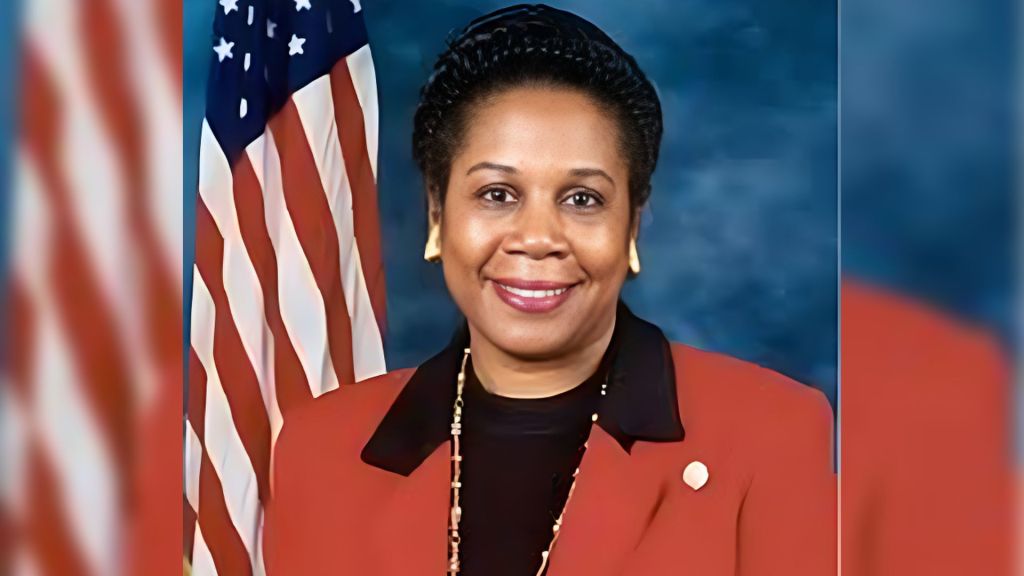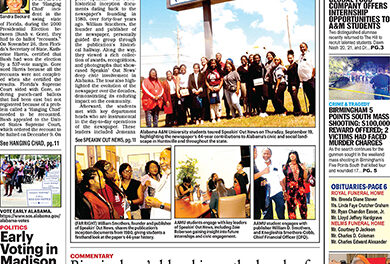Editorial by
Congresswoman Sheila Jackson Lee
Juneteenth was first celebrated in the State of Texas capital city of Austin in
1867 under the direction of the Freedmen’s Bureau. The Freedmen’s Bureau
was established to aid newly freed enslaved persons with their transition into
freedom, and remains the oldest known celebration of slavery’s demise, and
jubilation at their newfound FREEDOM. Juneteenth is a celebration of
African American culture that recognizes each generations’ sacrifice and
contributions that played a major role in making America live up to its
promise. Through the efforts of so many courageous African Americans, the
conscious of our nation transformed from slavery to one more accepting of
diversity as its strength to form a more perfect union.

My work to establish a Juneteenth Federal holiday began in 2013, when I
introduced my first Juneteenth Resolution recognizing the day’s importance.
I continued to introduce a Resolution each year.
In 2020, the world witnessed with their own eyes and ears as George Floyd
gasped for help while a Minneapolis police officer suffocated him with his knee for over nine minutes. Shortly afterward, streets filled with marches
across the nation.
This same emotion and response were also evident in the halls of Congress. It was apparent when I sent out a “Dear Colleague” seeking support from m
fellow Members of Congress to join as cosponsors of my 116th Congress
Juneteenth Resolution. The Resolution was introduced on June 15, 2020,
with over 200 original sponsors, and reached a total of 214 bipartisan
cosponsors before being adopted by the House of Representatives on June
30, 2020.
After seeing this tremendous level of support for the Juneteenth Resolution,
I knew the time had arrived for Juneteenth to become a federal holiday and
I tasked my Policy Director, Lillie Coney, to have Legislative Counsel draft a
Juneteenth Federal Holiday bill for introduction. The bill was drafted, and a
“Dear Colleague” was sent inviting members to join as original cosponsors of
the bill to establish Juneteenth as a Federal Holiday.
When I first introduced the bill, the House Parliamentarian blocked its
enrollment or listing as a House Bill because it violated a rule that prohibited
the introduction of bills establishing federal holidays. When I asked why the
parliamentarian did this, I was informed that House procedural Rules
prevented its introduction. The reply from the Parliamentarian was that the
bill included a specific date, “June 19,” which is prohibited by the House
Rules.
Because the holiday was Juneteenth—its name is the date, I directed that
“June 19” be removed from the House bill. After this change was made,
another “Dear Colleague” was circulated informing members of the change,
and the bill was introduced on June 18, 2020, with the designation of H.R.
7232, the “Juneteenth National Independence Day Act.”
My staff confirmed with the Congressional Research Service of the Library of
Congress, that H.R. 7232 was the first bill ever introduced in the history of
the House or Senate that would establish Juneteenth as a Federal Holiday.
Following the introduction of H.R. 7232, Senator Ed Markey’s staff reached
out to collaborate on a Senate Companion bill to H.R. 7232, the “Juneteenth
National Independence Day Act and introduced the Senate version of my
bill, under the designation of S. 4019 on June 22, 2020. Although, there was
one difference–the Senate bill included the date “June 19,” because there was
no rule in the Senate prohibiting a date.
The work of the 116th Congress ended without passage of the Juneteenth
National Independence Day Act; however, both the House and Senate
adopted their respective Juneteenth Resolutions for the first time.
In the 117th Congress, on June 16, 2021, Congresswoman Sheila Jackson Lee
and Senator Edward Markey simultaneously introduced both Juneteenth
National Independence Day Bills (known as H.R. 1320 and S. 475), and they
issued a joint press statement announcing the joint bill introduction.
Although the House could not advance H.R. 1320, the Juneteenth National
Independence Day Act, it would take up its Senate companion bill once it was
passed by that chamber. My efforts shifted to getting allies in the Senate to
work towards its passage. My long-time Juneteenth partner in the Senate,
Senator John Cornyn, joined this effort wholeheartedly and became the lead
Republican sponsor of the Markey bill, but this was not enough to meet the
required 60 votes to bring it before the full Senate for a floor vote.
Fifty-four bipartisan Senators are listed on the bill at the introduction of
S.475, the “Juneteenth National Independence Day Act”.
It would have been unwise to force a vote before we were certain it would
pass without objections. In the Senate if fewer than sixty Senators do not
agree to a vote on a bill it will not proceed. This meant that our next step was
to get six additional Senators to cosponsor S. 475 to ensure it would pass
without objections.
In March, Republican Senators John Hoeven of North Dakota and Shelley
Moore Capito of West Virginia, and Democratic Senators Mark Kelly of
Arizona joined as cosponsors of the bill. In May, Senators Ben
Cardin of Maryland and Jon Ossoff of Georgia added their names. And on
June 8, 2021, my dear friend Senator Raphael G. Warnock of Georgia became
the sixtieth Senator to cosponsor the bill.
Senator Warnock is the Senior Pastor at Ebenezer Baptist Church in Atlanta,
the former pulpit of Reverend Dr. Martin Luther King, Jr. It was poetic that
Senator Warnock’s co-sponsorship of the bill was the deciding factor in its
path to becoming the first Federal Holiday in nearly 30 years since the
Martin Luther King, Jr. Federal Holiday was established. The bill was taken
up by the Senate and passed on June 15, 2021, and sent to the House. The
House passed the bill on June 16, 2021.
President Biden was in Europe on June 16, 2021, when he decided to return
to the United States to sign the bill into law— just in time for the first
celebration of the Federal Juneteenth National Holiday to take place on
Friday, June 18, 2021, due to June 19 falling on a Saturday.
I was invited along with the entire Congressional Black Caucus, and Ms. Opal
Lee, to the White House for the official signing of the Juneteenth National
Holiday Act bill. At that moment, I thought of State Representative Al
Edwards, who introduced the June 19, Emancipation Bill, the first state
holiday bill in the nation, which became law establishing Juneteenth as a
holiday starting in 1980 for the state of Texas.
I applaud the U.S. Senate for passing S. 475, Juneteenth National
Independence Day Act, the companion legislation to H.R. 1320, which
commemorates the end of chattel slavery—America’s Original Sin, and to
celebrate the perseverance that has been the hallmark of the African
American struggle for equity and equality.
I thank Senator Ed Markey of Massachusetts for contacting my office in June
2020, with his request to introduce the Senate companion to H.R. 7232. I
also thank my Senator, the senior Senator from Texas, Senator John Cornyn
for his continuous and steadfast support of the Juneteenth holiday, along
with others who spearheaded this effort in the Senate, including Senate
Majority Leader Chuck Schumer, who shepherded the bill through the
process to ensure its passage.
My unwavering appreciation and thanks to President Joe Biden for sending
a powerful message about the importance of Juneteenth, by his swift action
to sign the bill in time for the National Holiday to be timely celebrated in
2021.
This is the history of how Juneteenth became the most recent Federal
Holiday, as the nation joined 47 states in recognizing this day as a time to
bond with African Americans in commemoration and celebration of
‘America’s second Independence Day.’
The post Do You Know the Legislative History of the Juneteenth Federal Holiday? appeared first on AFRO American Newspapers.










